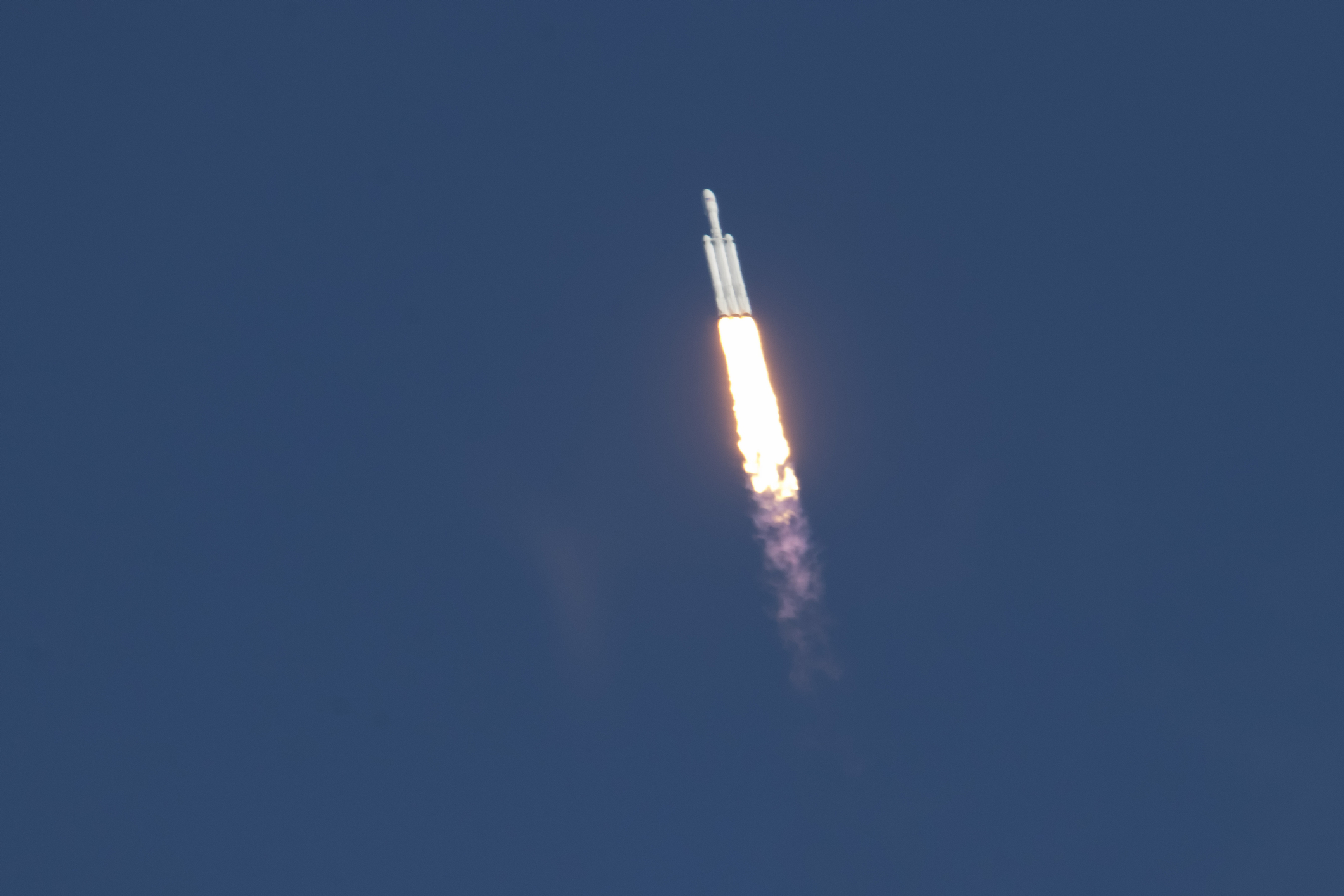Protecting the U.S. National Security Space Launch System
The U.S. competitive free market is one of the greatest advantages the United States has over China. In recent years, the United States has leveraged the strengths of the U.S. private sector, with its fair and open competition, to develop space launch vehicles for national security as well as civilian missions. The United States has become the world’s leading space power thanks to these innovative public-private partnerships.
But the U.S. Space Force is prematurely bending its rules to let lagging space launch companies bid for even its most vital contracts despite their poor competitive performance. The most prominent company likely to exploit this opportunity is Washington-based Blue Origin, which has strong congressional connections but not a working launch vehicle. This decision could produce delays, reliability problems, and increase risks for U.S. national security.
In February, the Space Force released two revised request for proposal (RFP) drafts for its National Security Space Launch (NSSL) initiative, formerly known as the Evolved Expendable Launch Vehicle program. This process will determine how the U.S. military and intelligence community will launch satellites for the next decade.
For the first time, these new RFPs divide the third phase of the NSSL into two “lanes.” Lane 1 will comprise around 30 lower-weight missions under relaxed qualification standards to encourage an unlimited number of potential new entrants with medium launch vehicles to participate in the NSSL.
Lane 2 will launch some 40 of the most critical national security payloads into space starting in 2025. These satellites will be vital to protecting America’s national security interests. Yet, the new NSSL contracting approach seems deliberately crafted to allow Blue Origin, with its New Glenn rocket, to bid for these contracts—despite the New Glenn not being certified for NSSL launches due to years of delays over safety and testing concerns.
Access to space is too essential for U.S. security and prosperity to allow a company to bid for these most sensitive national security contracts until its rocket is completed and certified for such demanding missions.
The Pentagon relies on access to space for navigation, reconnaissance, navigation, communications, imagery, targeting, weather forecasting, and intelligence-gathering. These capabilities help analyze global security developments, providing early warning of threats, monitor long-term environmental conditions, and support deterrence and defense missions throughout the world.
To remain an economic superpower, the United States cannot afford to fall behind in space. In 2020, the global space economy was already worth $424 billion, up 70% since 2010. By 2040, the space economy will be worth $1 trillion. The space sector drives economic and technological advancement by generating novel technologies, especially for computers, propulsion, energy, and electronics.
Yet, the United States faces a formidable space competitor in the People’s Republic of China (PRC). The ruling Chinese Communist Party (CCP) has pursued a long-term plan to make the PRC preeminent in outer space to achieve economic and military dominance. Chinese providers want to become the launcher of choice for companies looking to place satellites in orbit. The PRC may soon have the world’s only space station. The Chinese military wants to dominate the strategic high ground of space and exploit the U.S. military’s dependence on this domain.
Presidents and Congress have cleverly leveraged leading U.S. private sector firms to address these security and economic imperatives. In recent years, the heavy-lift launch vehicles of companies like SpaceX and the United Launch Alliance have placed dozens of vital satellites into space. They have a perfect record for reliably launching the Pentagon’s billion-dollar payloads, without a single failed mission. In a rigorous competition a few years ago, both companies beat out Blue Origin (and Northrop Grumman, which then decided to exit the program).
The NSSL has proceeded well. Every one of its almost one hundred missions has launched the payload in its intended orbit. There is no reason to abandon this successful formula by weakening standards. Trusting the country’s future space security to paper launch vehicles increases program risks and potential for failure.
The Space Force should let Blue Origin and other companies bid for future critical national security payload contracts only when they have effective launch vehicles. But not before.
Featured Image: Elon Musk`s Space-X Falcon Heavy rocket blasts off into a hazy Florida sky on it`s maiden launch from Kennedy Space Center, carry a Tesla roadster toward a perpetual deep space orbit around the sun and mars, February 6, 2018
Photo 109488503 / Space © Bcpix | Dreamstime.com

